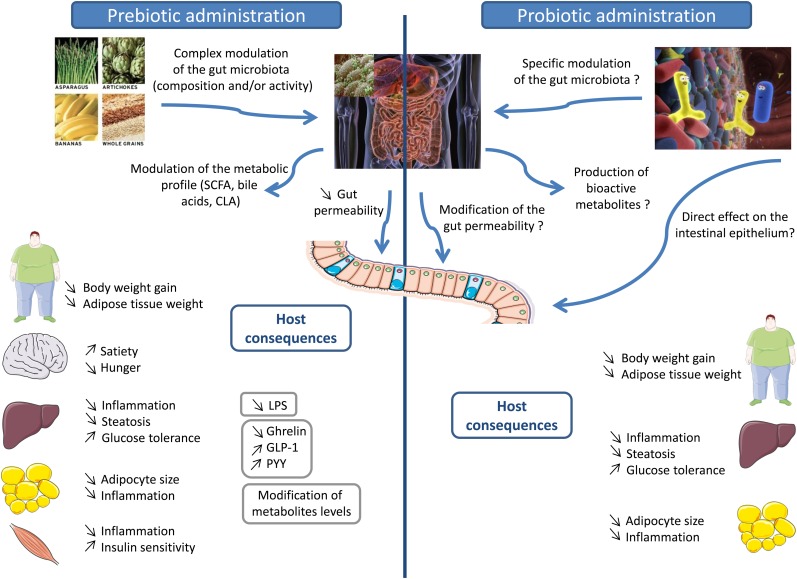FIGURE 1.
Effect of prebiotics and probiotics on host pathophysiology related to obesity. Dietary carbohydrates with prebiotic properties change the gut microbiota composition by favoring bacteria involved in the control of gut-barrier function and host immunity. In the gut, prebiotics help to improve the gut-barrier function, a phenomenon that decreases LPS translocation in the host and decreases low-grade inflammation associated with obesity. Prebiotics also promote the production of gut hormones that control appetite (increase satiety and decrease hunger) and glucose homeostasis (improve glucose tolerance). The prebiotic approach also counteracts hepatic steatosis, hepatic insulin resistance, and adiposity by modifying gene expression at the tissue level. Administration of probiotics (live microorganisms) could affect host metabolism in different ways: 1) a direct effect of these microorganisms on the intestinal epithelium; 2) inducing a modulation of the composition of the gut microbiota that can also act on the intestinal epithelium; and finally 3) acting directly on the host tissue. The interaction with host tissues can be mediated by the production of bioactive compounds by the probiotics, such as SCFAs, PUFA-derived bacterial metabolites, or bile acid metabolites. The data available suggest that probiotic administration is associated with a decrease of body weight and adipose tissue weight, a decrease of the adipocyte size, a modulation of glucose and lipid metabolism, an improvement of glucose tolerance, and a decrease of systemic inflammation in adipose tissue and the liver. GLP-1, glucagon-like peptide-1; PYY, peptide YY.

